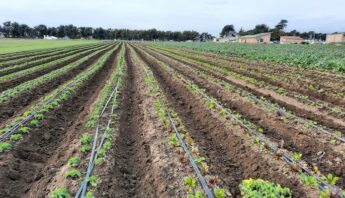Statement of Emily Marquez, PhD, staff scientist at Pesticide Action Network regarding the new study “Are Organic Foods Safer or Healthier than Conventional Alternatives?” to be published in the forthcoming issue of the Annals of Internal Medicine:
“As the study suggests, the nutritional superiority of organics is neither well-established nor a myth. As nutritional science evolves, consumers should look at the bigger picture of what healthy food means. What we already know is that organic food and farming minimize human exposure to pesticide residues in food and are beneficial to the environment.
Hazardous pesticides used to grow conventional produce can leave a lasting legacy in the air and water. USDA more frequently finds hazardous pesticides on conventional food as residue on foods Americans eat, including those that adversely affect children’s development and IQ. For instance, the study’s analysis found that 38% of the conventional produce had pesticide residues, as compared to 7% of the organic produce.
In addition, organic food and farming systems are more efficient in their use of water and protect biodiversity, and actively mitigate against climate change by creating carbon sinks.”







